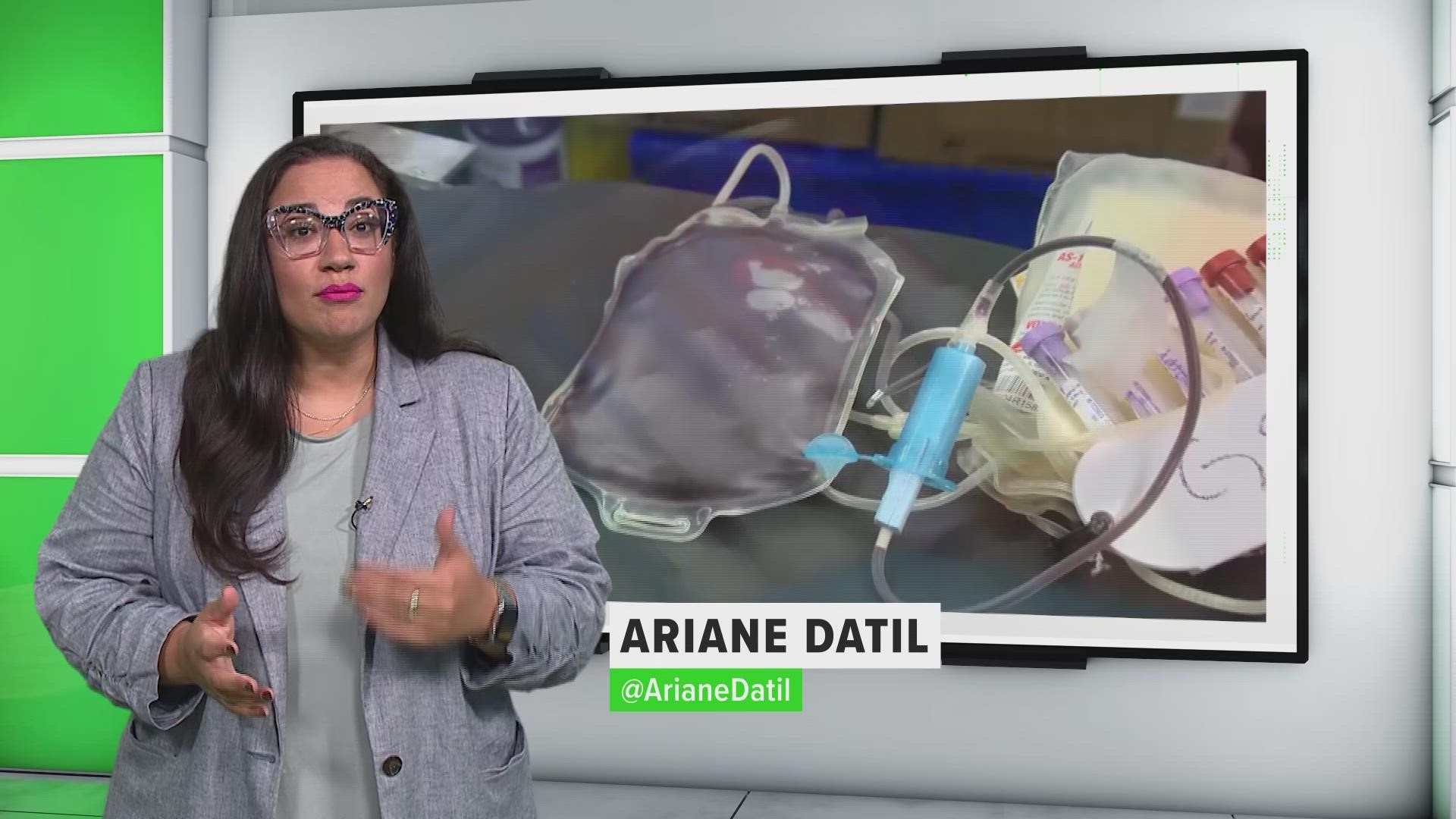TOLEDO, Ohio — The University of Toledo and American Red Cross have organized blood drives to address the nationwide blood shortage. The first event continues through 5 p.m. Tuesday. The second blood drive event will be Wednesday, Feb. 9.
The Tuesday blood drive continues through 5 p.m. in the Thompson Student Union on UT's main campus. Appointments are required. Donors can sign up by going to redcrossblood.org and entering the sponsor code UTMAIN.
The Feb. 9 blood drive will be from 9:30 a.m. to 3:30 p.m. on the third floor of Dowling Hall at UT's Health Science Campus. Appointments can be made by visiting redcrossblood.org and entering the sponsor code UTMED.
For further information and scheduling, individuals can call 1-800-RED-CROSS (733-2767).
Donors at at Tuesday's main campus event will get a $5 Chipotle gift card and a T-shirt.
Donors at the Health Science Campus drive will receive a $5 Chipotle gift card and a $10 Amazon gift card. Additionally, the UTMC department with the highest level of participation will win a pizza party.
These blood-donation events were organized in response to the nationwide blood shortage that is tied to the ongoing COVID-19 pandemic.
The Red Cross, which supplies close to half of the nation's blood, is seeing a 10% decline in the number of people donating blood since the beginning of the pandemic. The blood shortage has grown more severe since the the emergence of the omicron variant, which has caused the cancellation of some blood drives and also created staffing shortages.
UTMC Chief Medical Officer Dr. Michael Ellis, an infectious disease specialist, urged donors to roll up their sleeves and do their part.
“Locally and nationally, hospital operations have already been disrupted due to staffing shortages and the care of patients with COVID-19. Now, the blood shortage further threatens safe and effective care — especially for trauma, emergency surgery and oncology patients,” Dr. Ellis said.
“We should take heart that there is an intensely personal and tangible action we can take to help others in our community. Besides receiving our recommended vaccinations to prevent hospitalizations and deaths from COVID-19, and besides following recommended community health measures to prevent the spread of disease, we can give our own blood to help save the life of another person.”

